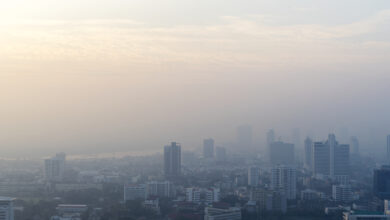
Duterte Admin Aims for a Healthier Philippines
With prices of commodities still too high for many citizens, it’s easy to see why an average Filipino could not care about health issues such as obesity and malnutrition. When you can’t afford a healthy and well-balanced meal for your family three times a day, satisfying hunger with just anything within the budget takes precedence over nutrition.
Nevertheless, this is a topic that everyone should start paying mind right now. Despite low prevalence rates for obesity and being overweight at 5.1 percent and 23.6 percent respectively, the number of Filipinos who have weight problems should be a cause for concern.
According to a 2017 study commissioned by Asia Roundtable on Food Innovation for Improved Nutrition (ARoFIIN), around 18 million Filipinos are obese and overweight. The report — which also included other ASEAN countries such as Malaysia, Indonesia, Singapore, Vietnam, and Thailand — called for “more concerted efforts by health authorities to tackle the problem of obesity so as to avoid strains on health-care systems.”
Aiming for a healthier Philippines
The Philippine government may have been listening to this recommendation, as President Rodrigo Duterte recently signed into law a comprehensive national feeding program, which will ensure that Filipino children are given proper nutrition.
Although Republic Act 11037 or the Masustansyang Pagkain para sa Batang Pilipino Act mainly addresses undernutrition, it is still a good step towards securing a healthier population.
Under the new law, government agencies are mandated to establish a National Nutrition Information System, which will integrate all existing national and local nutrition databases from local government units (LGUs) and national government agencies (NGAs). The system will also be used to monitor the health and nutrition of all Filipino children, but most especially those covered by the program.
Raising the standards in food technology
The Duterte administration understands that in order to provide quality food to Filipinos, the standards in food processing should be raised as well. The government further recognizes the important role of professional food technologists in reaching this goal. Hence, Republic Act 11052 was enacted to create the Professional Regulatory Board of Food Technology.
The new agency will be supervised by the Professional Regulation Commission, which will mainly function to regulate the food technology profession in the Philippines.
Food technology basically refers to the conversion of raw materials into safe, palatable, and nutritious foods through the use of physical, biological, and behavioral sciences. It also includes the various procedures of processing, handling, storage, packaging, distribution, and utilization of food.
Aside from these promising and commendable laws, the government is also pushing for simple measures like placing health warnings on sugar-sweetened beverages. Trade Secretary Ramon Lopez said that the directive to label drinks with high-sugar content as “dangerous to your health” came from the president himself.
Moreover, Duterte’s TRAIN (Tax Reform For Accreditation and Inclusion) law has imposed higher taxes on sugar-sweetened drinks in the hopes of discouraging Filipinos from consuming too much of these products.
As the president continues to aim for a healthier nation, it is also a fair point to ensure that he is in his best shape. Presidential Spokesperson Harry Roque assures that Duterte’s health is “good” despite the occasional migraines and his known ailments such as Buerger’s disease, which was caused by heavy smoking in his younger days, and Barrett’s esophagus, which impacts his throat.




